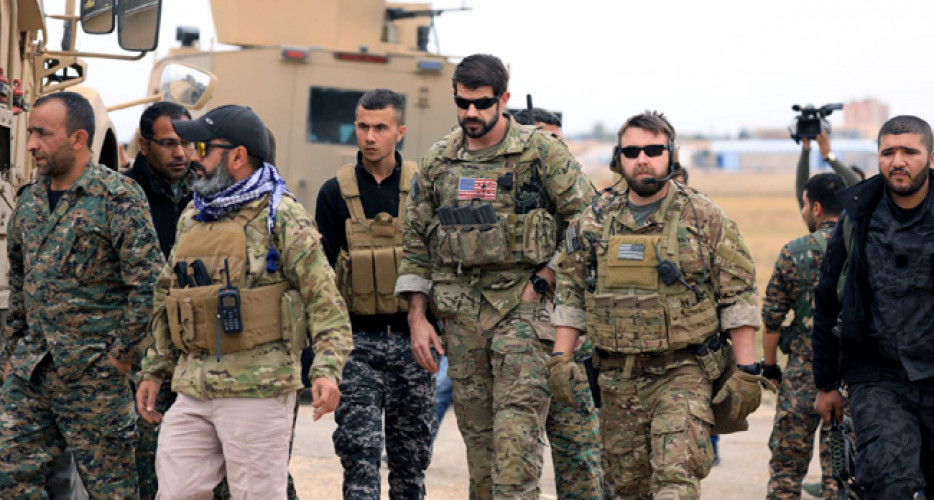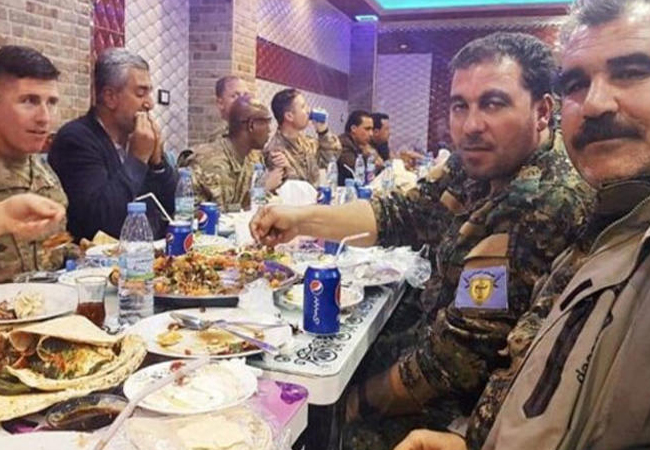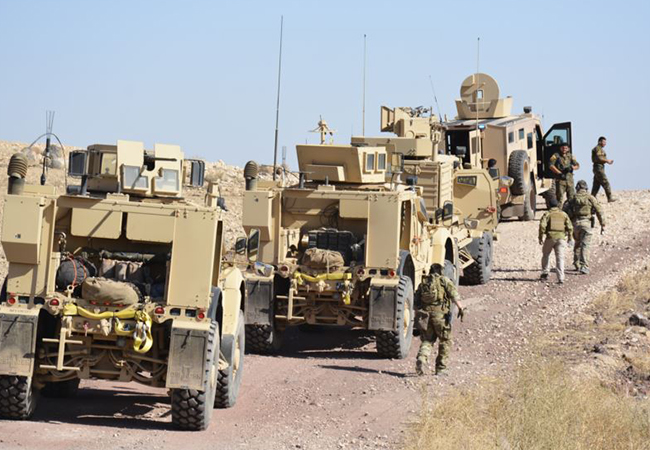
By Surkew Mohammed
A famous Kurdish saying is that only the mountains are our friends. Losing support from Russia in Afrin earlier this year once again revitalised this notion. Later again in the year, the US is hesitant in Rojava [Kurdish-controlled areas of northeastern Syria].
It is time to test whether the US is bound to the promises made to Rojava administration, or sides with its long-time North Atlantic Treaty Organization (NATO) ally, Turkey, for its infiltration into Rojava.
After Turkish president Erdogan's threat to attack the east of the Euphrates in Syria, Pentagon responded and said such unilateral acts are "unacceptable".
However, local sources claim Turkish military movement has started on the border to fulfil its threat, while Kurds are fighting in Der al-Zoor against the Islamic State (ISIL) extremists. Local Kurds claim Turkish attack aims at "protecting ISIL" by decreasing the pressure of Kurdish fighters on them.
Suffering from huge blows by Kurdish fighters, ISIL has lost most of its territories in Syria. Kurdish People's Protection Units, known as YPG, has been the most compelling ground force against the extremist group, being able to clear all the Kurdish areas of Syria from ISIL, in addition to some non-Kurdish areas, with the cooperation of the international coalition against ISIL.
The time has come for the US to decide between Kurds and Erdogan, as Ali Soufan, a former FBI agent for anti-terrorism cases told New York Times that the US had taken a proper path in Syria up until now, but remaining on the track is "almost impossible" for the time being.
Speaking in January 2018, when Turkey was attacking Afrin, Soufan said the US should either leave the Kurds behind, which would be considered as another 'betrayal' by them, or should involve in a struggle against Turkey in the region, whether directly or indirectly, which is a NATO ally.
However, the US avoided both options; first choosing non-alignment, later coming up with statements in support of Kurds. On the ground, they did not work to oppose Erdogan's intrusion.
Trump cannot retake the same stand, because agreements over Syria mentioned east of Euphrates, while Afrin was on the west. The west was under Russian protection, but the east is under the US protection. The east had been cleared with the help of Americans from ISIL extremists, as the foreign minister of Jazira Canton told Peregraf, "The US and coalition say these areas are liberated together, and we will protect them."
The US has stood for the promise, and the only area west of Euphrates that the US has a presence is Manbij. Such signs are essential for the Rojava Kurds.
Erdogan is irritated by the Kurdish-US relationship
Turkey has been working through recent years to distant the US of YPG. Whenever the US soldiers appear alongside Kurdish fighters, Turkey's heated expressions appear on the media.
Turkish foreign minister once again expressed his country's concern on 18 November, when some photos showed the American soldiers side by side with the Kurdish fighters, calling the images "humiliating".

- American soldiers and Kurdish fighters dine together in this photo, which irritated Ankara.
Turkey sees YPG as an extension of Kurdistan Workers Party (PKK), which is a group designated as terrorist by Turkey and the US. However, the US does not share the same belief. When faced with the question, the US always avoids it with the idea that the time is more suitable to "focus on destroying ISIL".
ISIL war is ongoing, Kurdish ground forces, along with the international coalition aerial attacks, have seen a share of victories and defeats recently. A Pentagon spokesman, Sean Robertson, said to "stay" with the ground forces until ISIL is destroyed. However, he said his country also cooperates with the Turkish ally, while warning: “Unilateral military action into northeast Syria by any party, particularly as U.S. personnel may be present or in the vicinity, is of serious concern. We would find any such actions unacceptable.”
This statement was a direct response to Turkey's Erdogan when he said the US presence in the east Euphrates is not to protect Turkey from terrorists but to protect terrorists from Turkey.
East Euphrates consists of Kobani, Gri Spi, Sarekani, Qamishli, up to Derik, which borders Turkey. The US has military watch-posts throughout these areas. When Turkey started bombing Kobani in November, the Syrian Democratic Forces, a Kurd-Arab alliance fighting against ISIL, suspended its war against ISIL. In response, the US began patrolling cruises with Kurdish forces in border areas of Turkey, until Turkey halted its bombardment. Later on, the Kurd-Arab alliance resumed its war against ISIL.
Kurdish administrative authorities in Syria asked the international community to stand against Erdogan's threats, "While ISIL is taking its last stand in Der al-Zoor, Erdogan attempts to invade Syria, to decrease pressure on the ISIL."

- The US soldiers and Kurdish YPG fighters patrol border areas of Syria-Turkey on 2 November 2018. Photograph: Dengi America
Russia and Rojava
Russia left Qazi Muhammad in the Kurdistan Republic in Mahabad [Iran] back in 1946, with some promises from the Iranian king, now the same scenario repeats itself, the foreign minister of Jazira Abdulkarim Omer Canton said in an earlier interview with Peregraf.
The Soviet Union was the primary supporter of Kurds in Iran to build a state in Iran in 1945, while the relationship took a different turn only one year after when some oil deals with the Iranian king emerged for Stalin.
After 72 years, Russia's Vladimir Putin repeated a similar scenario when it left the Kurds in Afrin, Syria, alone. There was a military base in Afrin prior to Turkish attack, seen as a protection against such attacks, but it withdrew immediately before the Turkish invasion in January. Some Kurdish officials called such a move "betrayal".
However, Kurdish foreign minister in Jazira says otherwise, citing Russian interests in the region, "It's possible that the US does the same in the future. These superpowers have their interests, and we have our own." He said, however, it would not be so easy for the US to leave the Kurds, as Turkish invasion might not serve the US interests in the region.